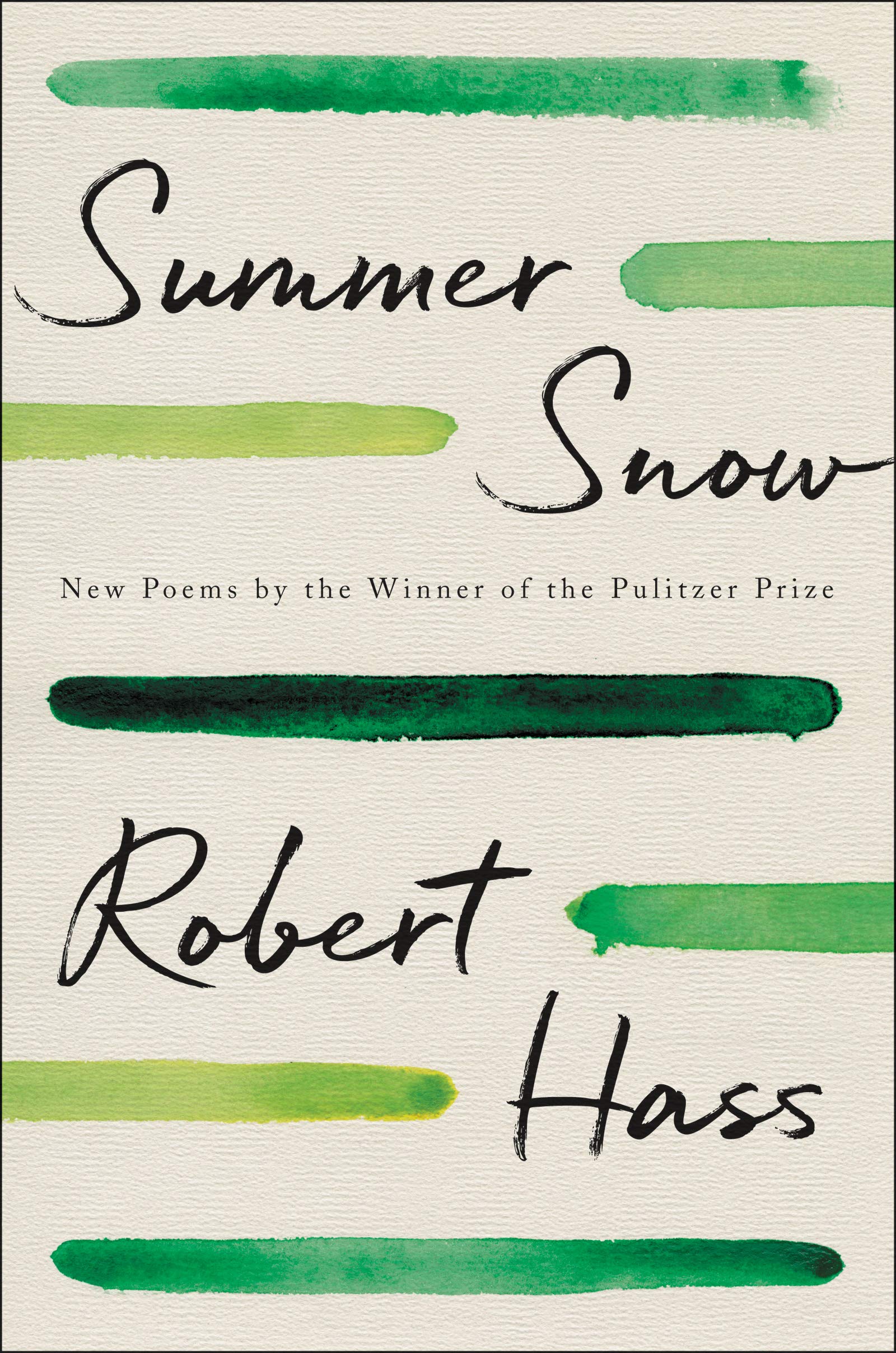
Format: 192 pp., hardback; Size: 6×9″ Price: $27.99; Publisher: Ecco; Number of Poems with “Notes” or “Notebook” in Their Titles: 7; Number of Poems with “Poet,” “Poem” or “Poetics” in Their Titles: 5; Presiding Intellect: Yosa Buson; Three Writers Hass Talks To or With in the Book: Eugenio Montale, Czesław Miłosz, Anton Chekhov; Representative Passage: “I had been thinking that day of my cousin Lisa’s death / From an overdose of drugs. It’s brutal, the way some lives / Seem to work and some don’t.”
Central Question: What if we didn’t give up?
All writing is experimental—is an experiment. What if I use this word. What if I try it from this angle. What if this follows this.
Some poems succeed by seeming both artificial and natural. Rhyme, for instance, can do that in a poem. Like a talented dancer: all body, listening so closely to itself, doing something a body would, in most circumstances, never think to do.
Some poems succeed by seeming both provisional and whole.
Something like that in Robert Hass’s later poems, including the ones in his new book. Poems that feel like a net in water, still a little bit adrift, so that what they contain seems still to belong to the ocean as a whole. And yet not an accident, either—a coherence, a consequence, in the way it holds what it holds. So that it lends something, by implication, to the ocean in which it pulls.
This stanza, for instance—or maybe it’s a poem? It’s the last section of “Nature Notes in the Morning”:
Sierra morning.
Bright sun. No wind,
So that stirring in the cottonwood
Must be a warbler.
The way reason (“so”) becomes imagination in those last two lines. And the way those four lines, how they’re written (the final line at last stretching out on the back of causality, finally offering a predicate to one of the nouns), how they stand still, absorbing the motion of all the other small, apparently unrelated observational sections that precede them, persuade me that all of this exists in a way that doesn’t depend on being written down.
It feels like it would take a long time to write something like that, whether or not one did much writing in that time. And so another thing those lines imply is time. World enough, as the long-ago courtier claimed not to have, and time.
And time is our medium—our human medium. Which means that a poem, in its rhythms, in its gathering of time and experience, can make our...
You have reached your article limit
Sign up for a digital subscription and continue reading all new issues, plus our entire archives, for just $1.50/month.
Already a subscriber? Sign in




